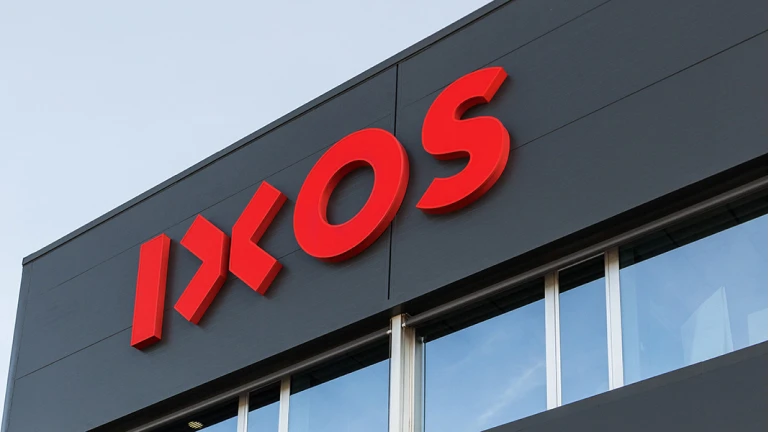Table of contents
Incentive compensation management (ICM) plays a vital role in motivating sales teams, rewarding achievements, and driving business growth. It involves designing and managing compensation plans that encourage salespeople to hit targets and boost performance. When used effectively, ICM can help a company stay competitive, retain top talent, and achieve ambitious goals. Here’s a closer look at what incentive compensation management is, why it matters, and how you can make it work for your sales organization.
What is incentive compensation management?
Incentive compensation management (ICM) refers to the process of creating and managing compensation plans that reward employees for achieving certain goals. These plans are typically designed for sales teams and can include various rewards like incentive pay, bonuses, or commissions. The goal is to align employees’ efforts with the company’s objectives, encouraging them to work toward achieving specific results. A well-thought-out incentive compensation plan motivates teams to focus on activities that drive growth, while also ensuring that compensation aligns with business priorities. By rewarding the right behaviors, companies can build a high-performance sales culture and continuously improve outcomes.
Why is incentive compensation management essential?
The right ICM strategy can significantly impact sales performance. When salespeople understand what’s at stake and see how their efforts translate into rewards, they become more engaged and motivated. This alignment between goals and rewards helps companies in various ways:
- Increases motivation: Well-structured incentive plans push sales teams to reach or exceed their quotas. Salespeople who see a direct link between their efforts and their compensation are likely to stay motivated and work harder.
- Retains top talent: Competitive compensation packages that include incentives help retain skilled sales professionals who might otherwise look elsewhere for better opportunities.
- Boosts overall performance: By rewarding top performers, companies encourage continuous improvement, helping underperformers strive to catch up with their peers.
How to design an effective incentive compensation plan
When developing an incentive compensation plan, keep these best practices in mind to make it fair, transparent, and aligned with company goals:
1. Set clear and measurable goals
To make your ICM strategy work, start by establishing specific, measurable targets that employees can work toward. This could be revenue-based goals, units sold, or metrics like customer retention. The clearer these goals are, the easier it will be for sales teams to understand what’s required to achieve them.
2. Choose the right types of incentives
Different incentive structures work for different sales roles. For example, commission-based compensation may be suitable for Account Executives focusing on high-volume sales, while short-term incentives such as quarterly bonuses might be more appropriate for roles with seasonal sales cycles. Adjust the compensation plan based on the job role and the company’s priorities to maximize its impact.
3. Provide ongoing visibility into compensation progress
Sales teams should have access to real-time information about how close they are to reaching their targets and how much incentive pay they stand to earn. This keeps them engaged and motivated, as they can see their progress toward earning rewards. Leveraging a compensation management platform allows salespeople and managers to track sales performance easily.
4. Incorporate flexibility for changing needs
Markets change, business priorities shift, and sales cycles can be unpredictable. Your ICM plan should be flexible enough to accommodate these changes. If the focus shifts from acquiring new customers to upselling existing ones, the plan can be adjusted accordingly to encourage the desired behavior.
Examples of common ICMs
- Commission-based incentives: These pay a percentage of each sale made by the salesperson, motivating them to close more deals. For example, a tech company might offer a 5% commission on software sales, rewarding reps based on the revenue they bring in.
- Quota-based bonuses: These reward salespeople for hitting specific targets, such as reaching $1 million in annual sales. If the quota is met, the salesperson earns a bonus, adding an extra layer of motivation.
- Short-term incentives: Used to drive behavior over a specific period, such as offering a bonus for closing a certain number of deals within a month. This strategy can be effective during seasonal promotions or product launches.
Why real-time insights matter for incentive compensation management
Incentive compensation management goes beyond just setting up plans; tracking and adjusting them based on real-time data is equally crucial. Here’s why real-time insights can make a difference:
- Quickly identify what’s working (and what’s not)
Real-time performance tracking lets managers spot trends and adjust incentive plans as needed. For example, if the data shows that a particular incentive isn’t driving the desired behavior, it can be modified to ensure alignment with the company’s objectives. - Keep sales teams informed and engaged
When salespeople know how they are performing against their targets at any given time, they can adjust their strategies and prioritize high-impact activities. Real-time tracking offers a clear picture of potential earnings, providing an additional motivation boost. - Adapt to changing market conditions
Sales environments are dynamic, and your ICM strategy should be too. If a sudden market shift impacts your sales goals, you can use real-time data to adjust the incentive plans and guide your teams to stay on track.
Practical examples of incentive compensation management in action
- A SaaS company realigns incentives to support new product launches:
By rewarding sales reps for upselling existing customers to new features, the company increased product adoption by 30% in six months. They adjusted their incentive compensation plan to include bonuses for each upsell achieved during the launch period. - A retail business uses seasonal incentives to boost sales:
A retail company saw an opportunity to maximize sales during the holiday season by implementing short-term incentives. They offered bonuses for hitting daily sales targets, resulting in a 25% increase in sales during peak shopping periods.
Common mistakes to avoid in incentive compensation management
1. Setting unrealistic goals
If targets are too high, employees may feel discouraged rather than motivated. Ensure your quotas are challenging yet attainable to maintain enthusiasm.
2. Over-complicating compensation plans
Simplicity is key. Avoid overly complex structures that can confuse employees. A straightforward approach helps them understand how to achieve their rewards.
3. Neglecting regular plan reviews
Review incentive plans regularly to ensure they remain relevant. What worked last year may not be as effective today, so stay agile and make adjustments when needed.
Empower your sales team with the right incentive strategies
Incentive compensation management is a powerful tool that drives sales performance, motivates teams, and aligns their efforts with business goals. Whether using commission-based incentives, quota-driven bonuses, or short-term incentives, the key is to create a transparent and flexible plan that rewards the right behaviors. By providing real-time insights and adapting to changing conditions, companies can unlock the full potential of their sales teams.
For businesses ready to elevate their incentive compensation strategies, investing in a robust compensation management system that simplifies processes, automates tasks, and provides valuable data insights will set them up for success. When you master incentive compensation management, you empower your sales team to reach new heights and drive growth across the organization.





